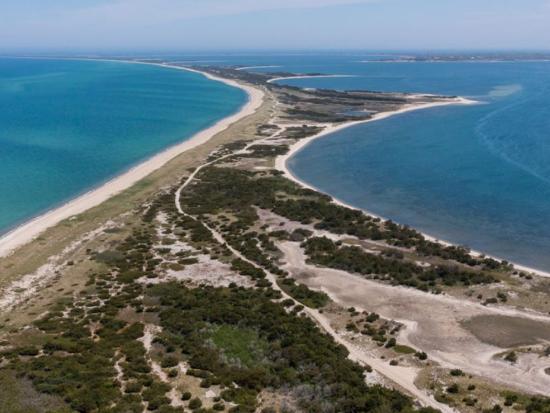
Secretary of the Interior Deb Haaland today designated Nantucket Barrier Beach and Wildlife Refuge in Massachusetts as the newest National Natural Landmark, reflecting its unique ecological diversity and rare coastal features.
National Natural Landmarks recognize and encourage the conservation of publicly and privately owned and managed places that contain noteworthy biological and geological resources. Sites are designated by the Secretary of the Interior for their outstanding condition, illustrative character, rarity, diversity and value to science and education. The National Park Service works cooperatively with landowners, managers and partners to promote conservation and appreciation of our nation’s natural heritage.
“National Natural Landmarks are a key component of the Biden-Harris administration’s commitment to supporting locally led conservation efforts,” said Secretary Deb Haaland. “The Nantucket Barrier Beach and Wildlife Refuge holds immense value to scientists and nature lovers alike, and its designation as a National Natural Landmark will help to preserve and protect this unique ecological diversity for generations to come.”
“National Natural Landmarks shine a light on outstanding examples of our nation’s natural heritage,” said National Park Service Director Chuck Sams. “And in the case of Nantucket Barrier Beach and Wildlife Refuge, the designation recognizes an area that is not only scenic but also teaches us so much.”
At Nantucket Barrier Beach and Wildlife Refuge, coastlines and habitats are constantly changing. The sand resembles the rhythm of waves, a unique result of Nantucket Harbor’s orientation combined with a steady supply of sand deposited by glaciers over 20,000 years ago. Six of these rhythmic deposits repeat, creating a world-class example of the rare geologic feature that has improved scientists’ understanding of coastal ecology.
Nantucket Barrier Beach and Wildlife Refuge is owned and cooperatively managed by The Trustees of Reservations, Nantucket Conservation Foundation, and U.S. Fish and Wildlife Service. With today’s announcement, there are now 606 National Natural Landmarks in the United States.
